The Protestant Reformation wouldn’t have happened as it did apart from books. And as we near the 500th anniversary of the Reformation in 2017, we’ll be treated to dozens of more titles recounting its history. In order to get a head start on the reading, I recently reached out to several scholars and asked them to each recommend one title on the Reformation.
Once you’ve added one or more of these titles to your reading list, consider joining us next year for the TGC 2017 National Conference—“No Other Gospel: Reformation 500 and Beyond”—where we’ll celebrate the Reformation’s 500th anniversary and feature more than 50 talks from 65 speakers. Browse the list and register soon!
Robert Kolb
Professor emeritus of systematic theology
Concordia Theological Seminary (St. Louis, Missouri)
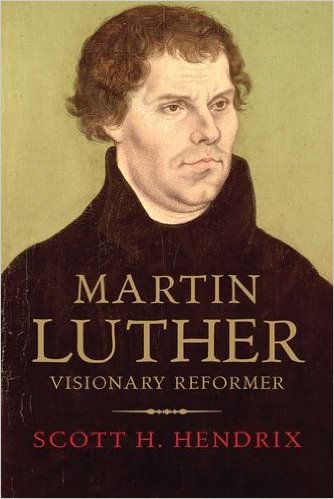
I’m excited about Scott Hendrix’s Martin Luther: Visionary Reformer. We finally have a volume written in sprightly fashion with telling anecdotes that bring both Luther’s theology and personality to readers in an enjoyable manner. He surveys Luther’s life and his interaction with his family, colleagues, and students, as well as with princes, patricians, and all other likes of human beings.
At the same time, Hendrix makes clear what Luther’s faith in Jesus Christ meant for his reading and proclamation of Scripture.
Shawn Wright
Associate professor of church history
The Southern Baptist Theological Seminary (Louisville, Kentucky)
The challenge in recommending just one book on the Protestant Reformation is that it was such a rich time in history. The Lord worked through many remarkable people to bring about a change in perspective on life-giving matters like justification by faith alone (sola fide) and the reality that God’s Word alone (sola scriptura) is sufficient to guide is in eternal matters. 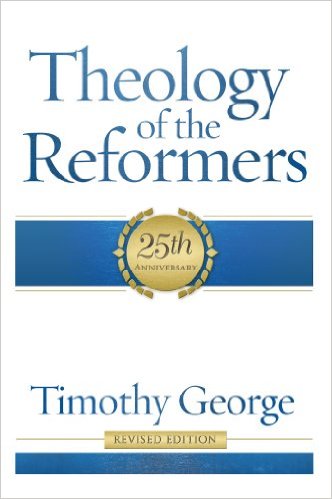
The doctrinal developments are central, then, to what occurred. In order to understand them aright, we need to have a sense of the theological context of the late medieval world. But we also need to understand some of the key individuals—like Martin Luther and John Calvin—without whom the entire Reformation would not have happened. The one book on the Reformation I first recommend for these reasons—putting the period in its theological context, providing an overview of key individuals, and discussing their doctrinal contributions—is Timothy George’s Theology of the Reformers. George is a master historian and a gifted storyteller. The book brings readers into the pathos of the era, showing why a religious change was necessitated. And it highlights the contributions of key figures in lengthy chapters on Luther, Zwingli, Calvin, Simons, and Tyndale, allowing readers to understand them in their contexts, as well as displaying their key doctrinal developments.
Jeffrey Jue
Provost and associate professor of church history
Westminster Theological Seminary (Glenside, Pennsylvania)
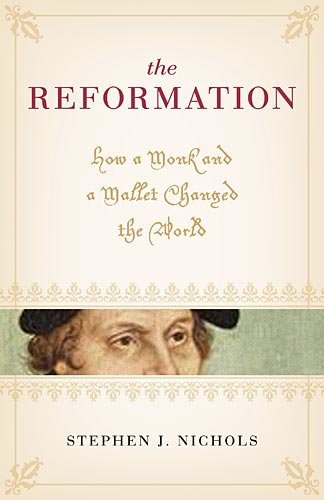 Stephen Nichols, who will be speaking at TGC’s 2017 National Conference, has written a readable history of the Reformation. The Reformation: How a Monk and Mallet Changed the World presents a helpful introduction to the Reformation, beginning with why the Reformation still matters today, then covering the major wings of the movement, including Martin Luther in Germany, the Swiss Reformation with Ulrich Zwingli and later John Calvin, and the British Reformation. He also includes a section on the contribution of women to the Reformation, looking at the wives of many Reformers and significant Protestant queens. As we near the 500th anniversary of the Reformation, I recommend this volume for those interested in an enjoyable summary that gives a big picture of this historic movement that changed the course of Europe and much of the world.
Stephen Nichols, who will be speaking at TGC’s 2017 National Conference, has written a readable history of the Reformation. The Reformation: How a Monk and Mallet Changed the World presents a helpful introduction to the Reformation, beginning with why the Reformation still matters today, then covering the major wings of the movement, including Martin Luther in Germany, the Swiss Reformation with Ulrich Zwingli and later John Calvin, and the British Reformation. He also includes a section on the contribution of women to the Reformation, looking at the wives of many Reformers and significant Protestant queens. As we near the 500th anniversary of the Reformation, I recommend this volume for those interested in an enjoyable summary that gives a big picture of this historic movement that changed the course of Europe and much of the world.
Mark Dever
Senior pastor
Capitol Hill Baptist Church (Washington, D.C.)
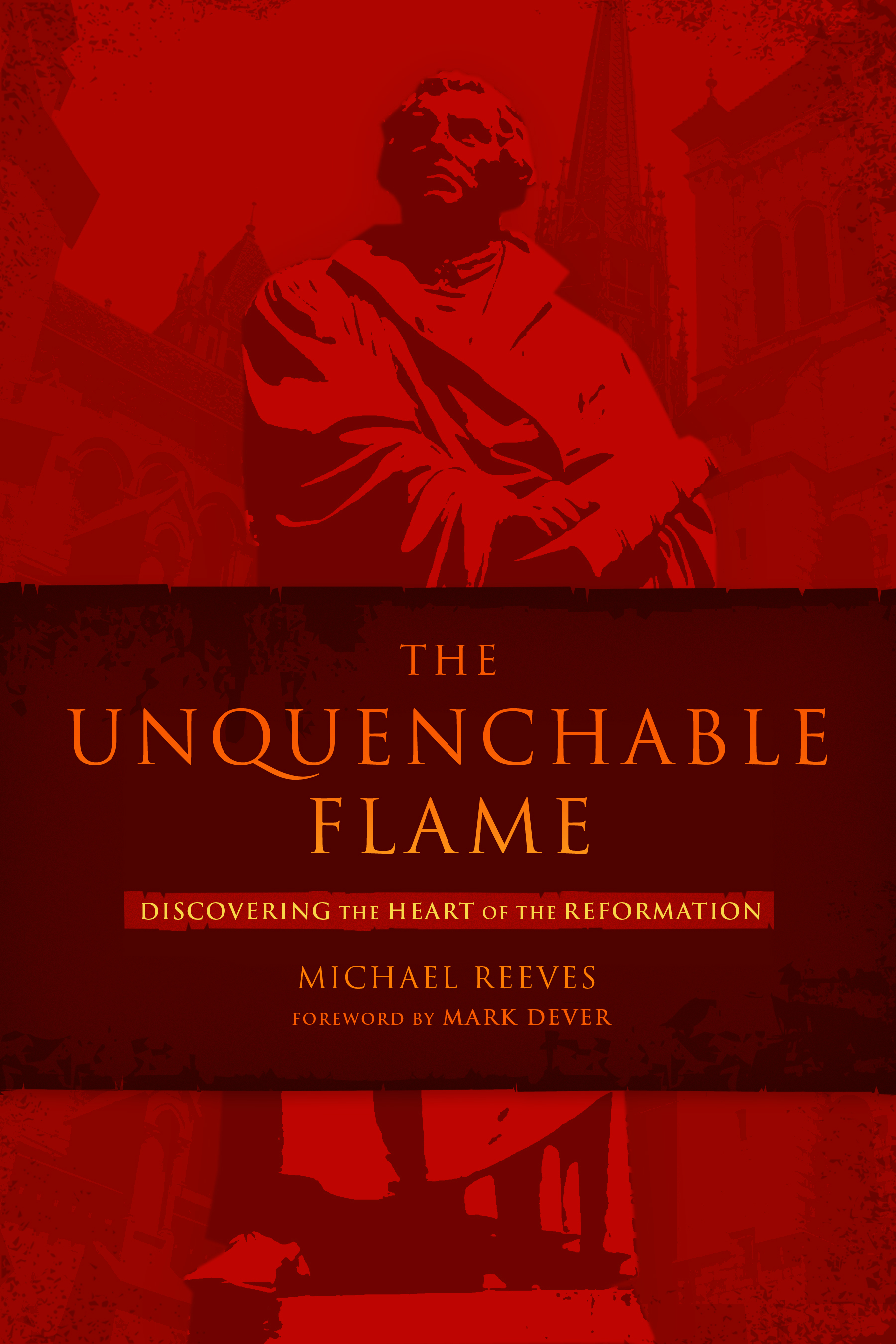
Michael Reeves, The Unquenchable Flame. This book is well written and well illustrated. It also keeps the spiritual focus of the Reformation in clear view throughout. It’s a great read. I highly commend it. And it’s short. Like this paragraph.
Matthew Barrett
Tutor of systematic theology and church history
Oak Hill College (London, United Kingdom)
If I mention any book but the soon-to-be-released Reformation Theology: A Systematic Summary (Crossway, 2017), then I will have 20 top-notch Reformation theologians wondering what we’ve been laboring over for the past three years; that outrage would be justifiably shared by four other stellar theologians who participated in The 5 Solas Series (Zondervan). 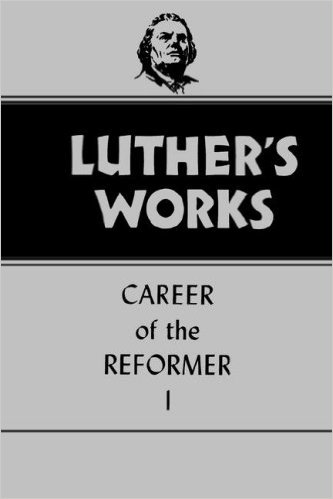
Nevertheless, if I can duck their protests, allow me to put forward one book from the pen of Luther himself: Luther’s Works, Volume 31: Career of the Reformer I. Here, in one volume, grow the seeds of what will become Luther’s mature theology. The volume starts with Luther’s “Disputation Against Scholastic Theology,” “Ninety-five Theses,” and “Heidelberg Disputation.” These works will help any student of the Reformation understand Luther’s initial discomfort (and disgust) with late medieval soteriology, as well as the genesis of Luther’s “theology of the cross” (much in contrast to the medieval era’s “theology of glory”). The volume also includes Luther’s “Two Kinds of Righteousness,” “The Leipzig Debate,” and “The Freedom of a Christian,” among others. Not only do sola gratia and sola fide shine bright, but sola scriptura as well. At Leipzig Luther is labelled a friend of heretics John Wycliffe and Jan Hus. By the end of his dispute with Johannes von Eck it’s crystal clear to Luther that popes and councils err; Scripture alone is inspired by God, without error, and therefore the final authority for the church.




































